
OR
DCC faces staff shortage due to budgetary constraints and program limitations
Published On: March 25, 2024 07:05 PM NPT By: Bhuwan Sharma
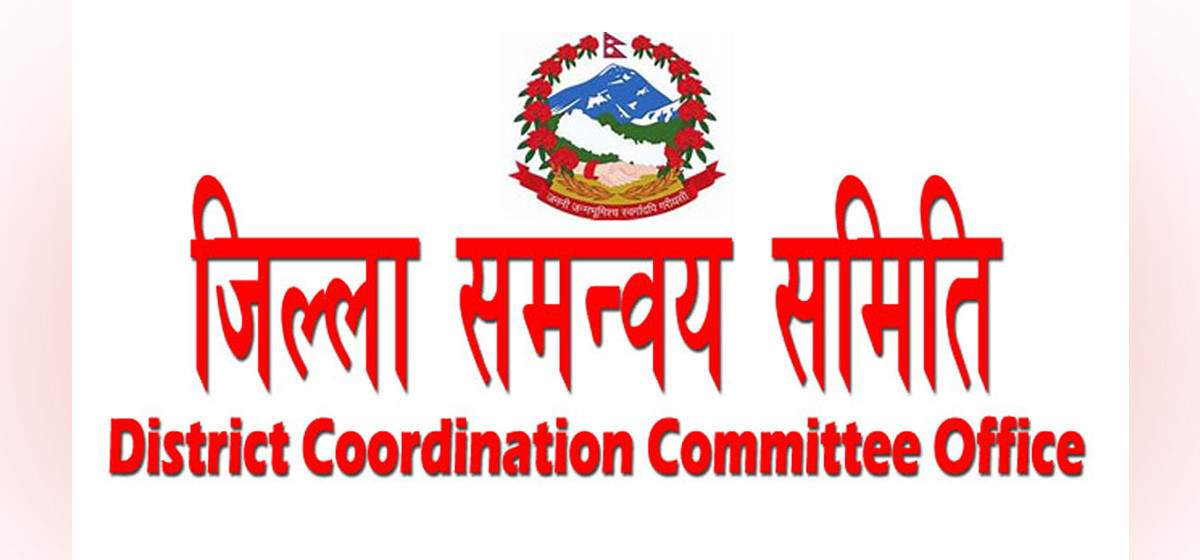
KATHMANDU, March 25: For all 77 districts of the country, there exists a provision for appointing an employee of the under-secretary level as the District Coordination Committee (DCC) Officer. However, in over 80 percent of these districts, under-secretaries are reluctant to take up the position of DCC Officer. Consequently, lower-level employees have assumed the responsibilities of DCC Officer in the majority of districts. Moreover, many districts have not fulfilled their staffing quotas, with some employing less than half of the required workforce.
Several under-secretaries, unwilling to go outside of Kathmandu, have settled in three districts within the valley due to the unavailability of appealing office placements.
Likewise, under-secretaries have been dispatched to urban districts such as Morang, Kaski, and Rupandehi. Apart from that, lower-level employees have been actively overseeing operations in the majority of the districts.
As a result, the DCCs, tasked with coordinating local-level activities and monitoring development projects within the district, have become merely a formality. This situation has arisen due to inadequate budgetary allocations and staff shortages.
Kamal Bhattarai, spokesperson and Joint Secretary of the Ministry of Federal Affairs and General Administration (MoFAGA), said that a significant number of District Coordination Committees (DCCs) are reluctant to employ under-secretaries due to budgetary constraints and program limitations. That is why, there is a substantial shortage of staff within the DCCs.
An under-secretary from the MoFAGA said, "Due to the lack of budget and programs in the DCCs, there is no enthusiasm among employees to be stationed there." Furthermore, even if they are assigned to the DCCs, they often face transfers to other offices within two to three months.”
According to some employees, those preparing for the Public Service Commission (PSC) exam prefer to be stationed at the DCCs. This is because the workload is lighter, allowing ample time to focus on exam preparation. There is a provision in the law that DCC coordinators are elected from local people's representatives, while DCC officers are appointed by the federal government.
The constitution has given the DCCs the responsibility to facilitate coordination among the central, provincial, and local levels. Additionally, the Local Government Operation Act of 2074 BS has granted the DCCs the authority to convene training sessions, seminars, and conferences involving local-level officials. However, many DCCs have failed to exercise the rights bestowed upon them by the constitution. While a handful of DCCs have organized a limited number of training and seminar programs, the majority have neglected to do so.
A senior official of the MoFAGA says that there is still confusion regarding the tenure and role of District Coordination Committees. The official stated, "While the constitution grants the DCCs the authority to coordinate and monitor, there are no clear guidelines regarding their duration of service." This lack of clarity has led to confusion among stakeholders.
Previously, the DDCs were established in place of the District development committees (DDCs). During that period, the government also instituted a livelihood fund to support employment opportunities. By the time the DDCs were dissolved, the fund had amassed about Rs 6 billion. However, in the context of DCCs, officials lament the absence of a similar fund.
Presently, the DCCs have been established in all 77 districts of Nepal. As per the Constitution of Nepal, each DCC comprises nine officers, including one chief and one deputy chief.
As the office of the DCC is situated in the same building previously occupied by the District Development Committee, the DCC does not encounter challenges regarding office placement. However, the DCC grapples with confusion regarding its rights, roles, and various other matters.
You May Like This
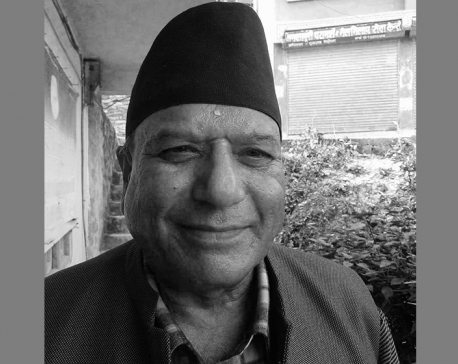
Okhaldhunga DCC Chair Khanal passes away
OKHALDHUNGA, Oct 1: The chairman of the District Coordination Committee (DCC) Okhaldhunga, Dilliram Khanal, has passed away. He was 73. Read More...
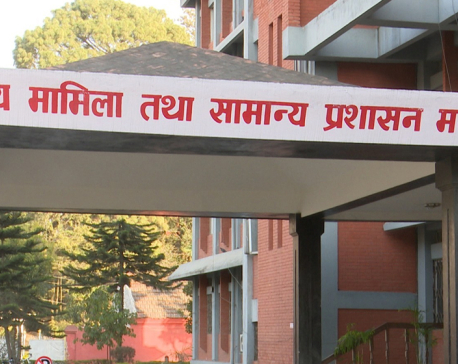
MoFAGA writes to local governments to immediately put into effect the austerity measures
KATHMANDU, Feb 5: The Ministry of Federal Affairs and General Administration (MoFAGA) on Friday wrote to the district coordination committee... Read More...
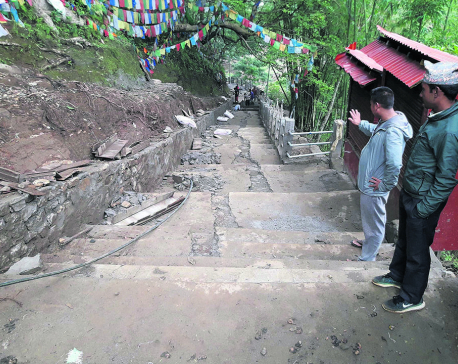
Concrete stairs to religious spot Halesi damaged even before construction completed
KHOTANG, July 23: Even before it could get the finishing touches, a concrete staircase being built at the highly revered... Read More...



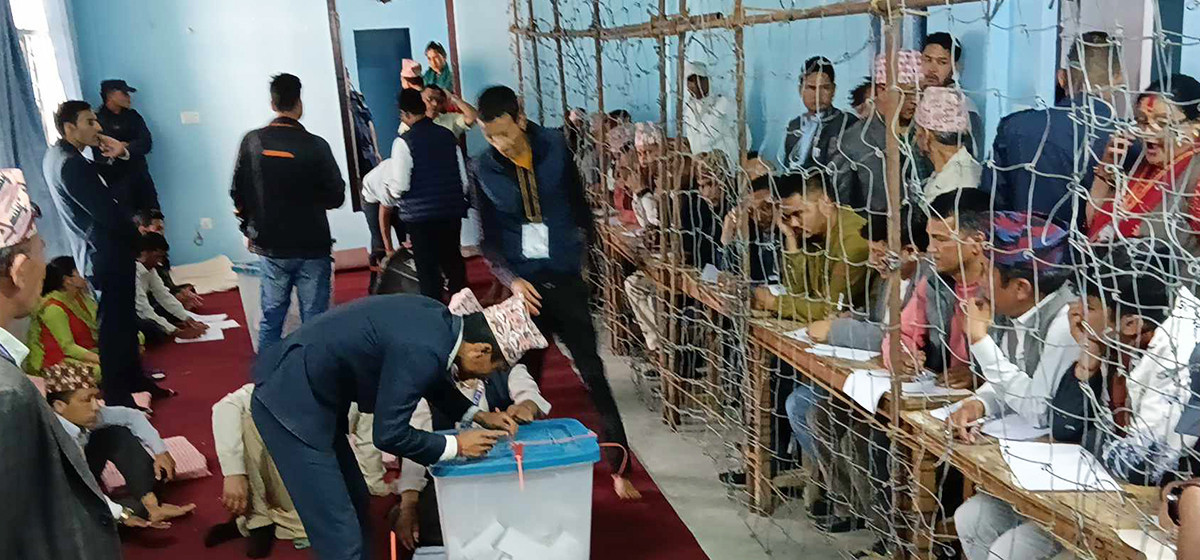
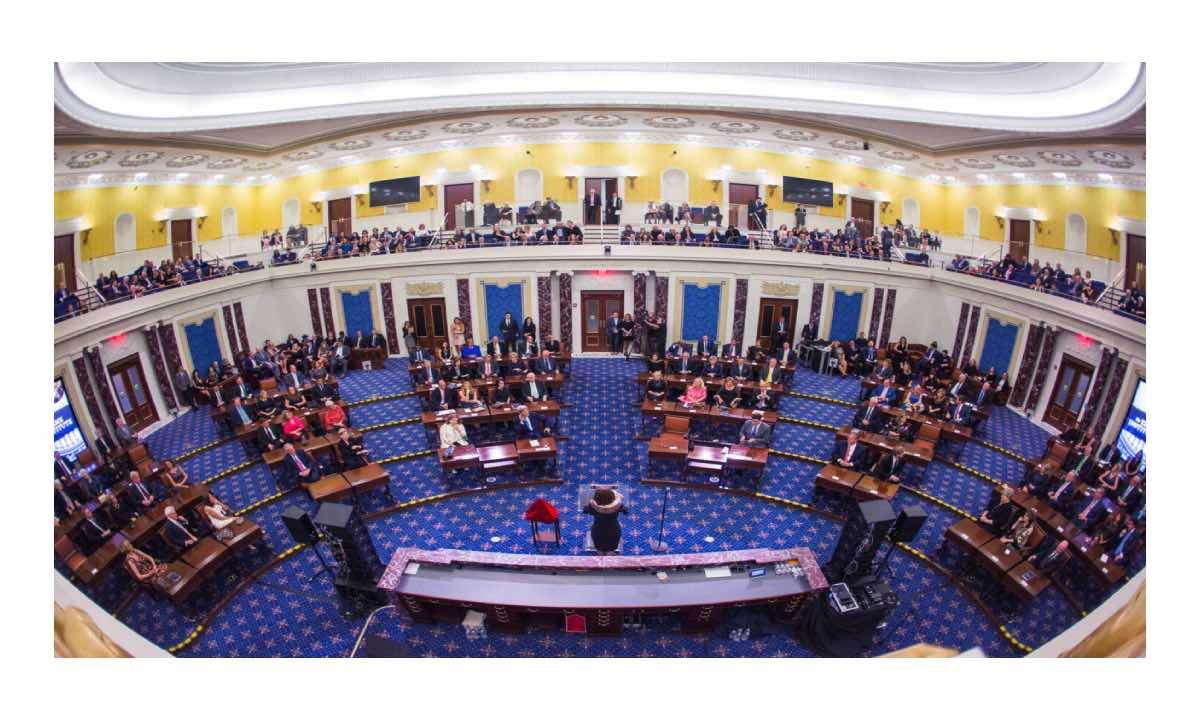
Just In
- Bajhang by-election update: NC candidate ahead by 249 votes
- Aid for war: On the United States Senate and aid package
- NEA Provincial Office initiates contract termination process with six companies
- Nepal's ready-made garment exports soar to over 9 billion rupees
- Vote count update: UML candidate continues to maintain lead in Bajhang
- Govt to provide up to Rs 500,000 for building houses affected by natural calamities
- China announces implementation of free visa for Nepali citizens
- NEPSE gains 14.33 points, while daily turnover inclines to Rs 2.68 billion












Leave A Comment